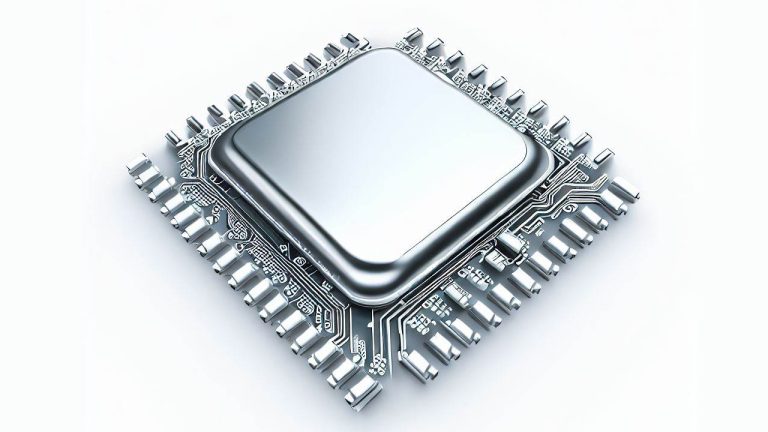
Eight months ago, there was a significant transformation in the realm of lucrative proof-of-work (PoW) mining algorithms when Ethereum made the transition from PoW to proof-of-stake (PoS). During that period, the prevailing consensus algorithms for mining were Kadena, Scrypt, and Cuckatoo32. However, the landscape has evolved, and presently, the most profitable consensus algorithms for mining encompass Kheavyhash, Scrypt, and Eaglesong.
The Evolving Landscape of Profitable Proof-of-Work Algorithms
While mining bitcoin (BTC) remains a profitable venture, it is not the foremost crypto asset for maximizing profitability in 2023. As of May 23, 2023, bitcoin ranks fifth among the most profitable cryptocurrencies to mine this year, while several other digital assets promise higher returns.
At the height of mining profitability stands a lesser-known PoW token named kaspa (KAS). Currently, KAS can be mined employing a graphics processing unit (GPU) utilizing the Kheavyhash algorithm. However, Bitmain has developed an application-specific integrated circuit (ASIC) specifically designed for mining KAS.
According to information provided on Bitmain’s website, the availability of Bitmain’s KAS Miner KS3 to the general public is scheduled for August and September 2023. Archived data from asicminervalue.com as of May 23 suggests that if the KS3 were accessible at present, it would generate an estimated daily profit of $2,045, assuming electricity costs of $0.12 per kilowatt hour (kWh).

The KS3 boasts a hashpower of 8,300 gigahash per second (GH/s) or 8.3 terahash per second (TH/s) specifically designed for the Kheavyhash algorithm. Upon its release, each unit of the miner will be priced at $49,800, as indicated by Bitmain’s shop.
Following KAS, the next noteworthy consensus algorithm in terms of profitability is Scrypt, which enables individuals to mine cryptocurrencies such as dogecoin (DOGE) and litecoin (LTC), along with various other crypto assets, utilizing a Scrypt-compatible ASIC device. Bitmain offers a range of machines that are part of the Antminer L7 series, initially introduced in 2021 and subsequently expanded in 2022.
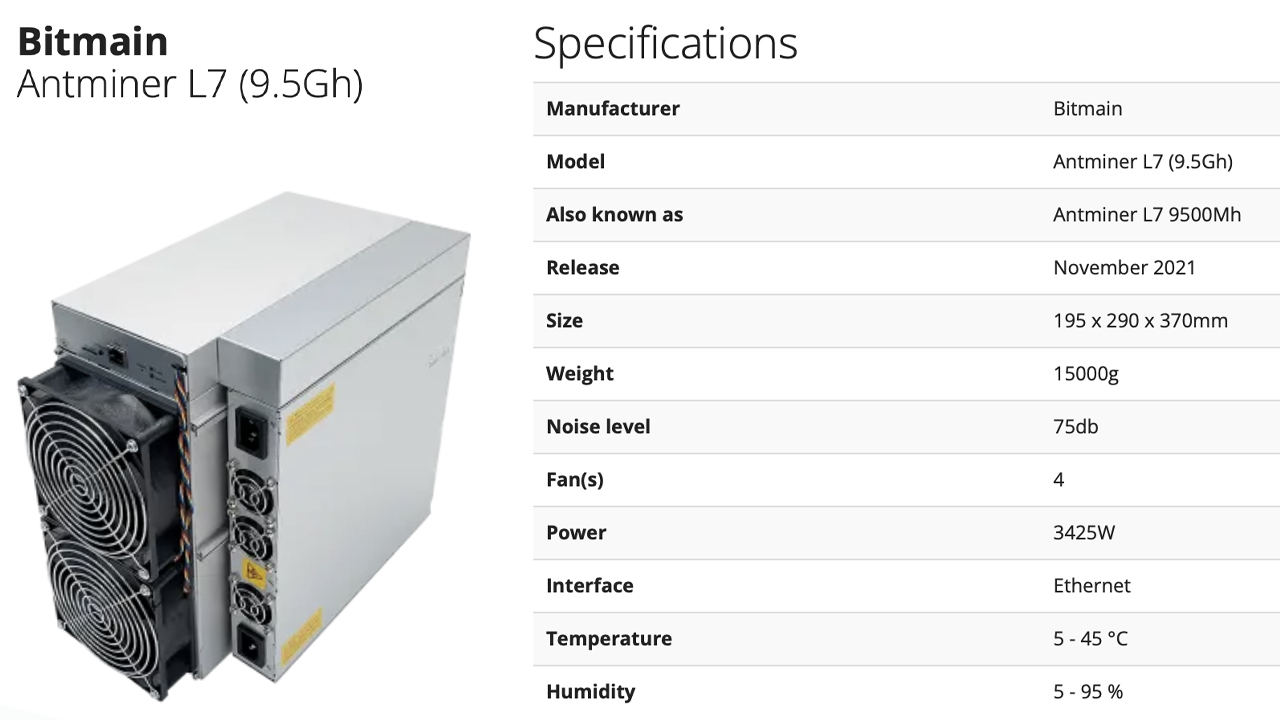
As of May 23, an L7 device boasting a hashpower of 9.5 gigahash per second (GH/s) is estimated to generate a daily profit of $13.66. It’s worth noting that, at the time of writing, Bitmain’s L7 units are priced at $8,550 per device; however, they are currently sold out.
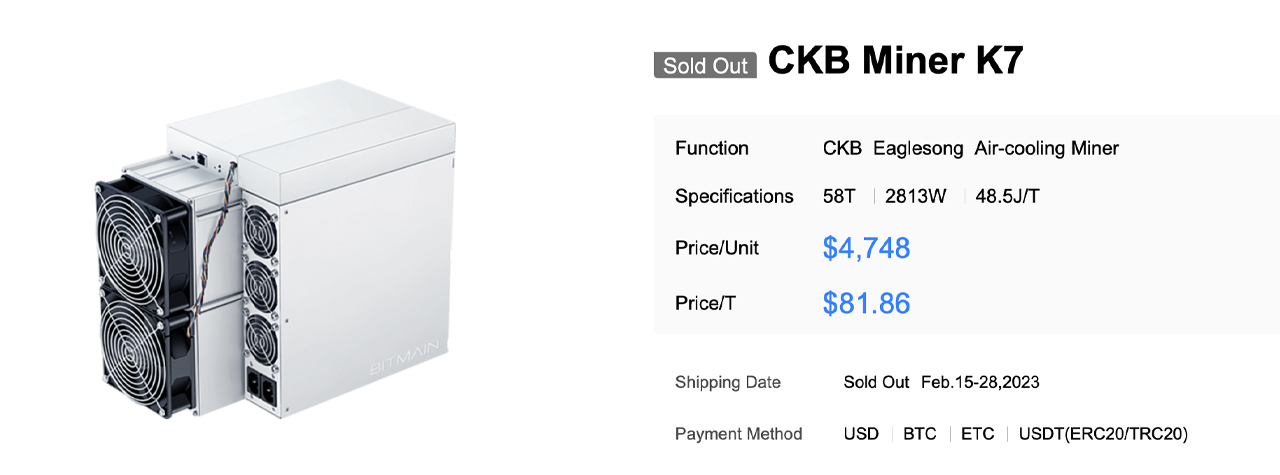
Among the highly profitable crypto miners, the Antminer K7, an Eaglesong-compatible ASIC, stands out with hashpower of around 63.5 terahash per second (TH/s). Currently, the K7 miner is sold out, but it is listed with a price of $4,748 per unit on Bitmain’s sold-out filter. This particular Antminer is designed exclusively for mining the relatively lesser-known crypto asset called nervos (CKB).
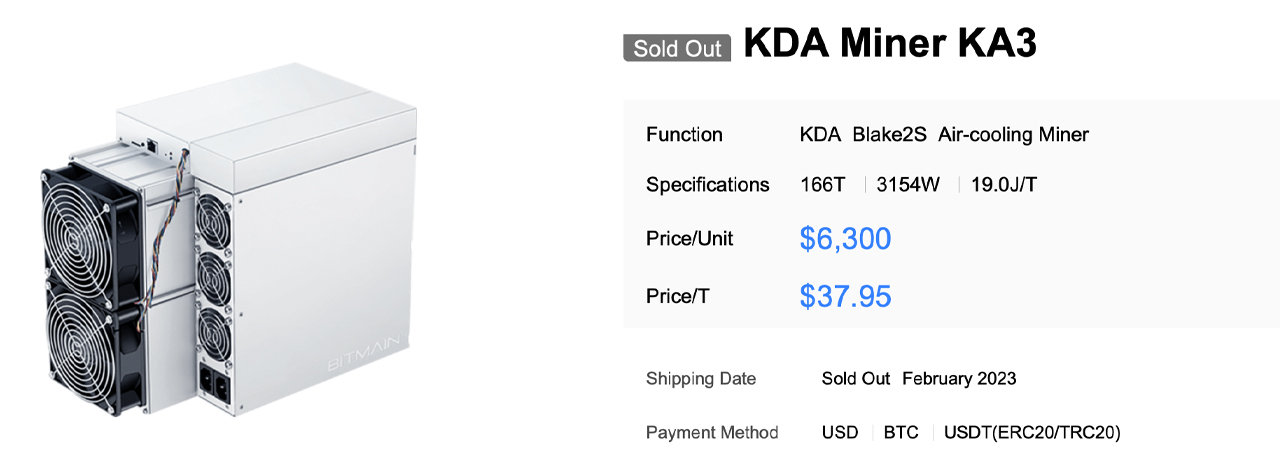
Based on current exchange rates, it is estimated that the K7 miner can generate daily profits of approximately $8.70. Moving forward, the Kadena consensus algorithm is noteworthy, specifically utilized for mining the crypto asset known as kadena (KDA). Once again, Bitmain takes the lead as the manufacturer of the most profitable mining rig for KDA.
With a hashpower of 166 terahash per second (TH/s), the Antminer KA3, compatible with Kadena, is a notable mining device. Considering the current exchange rates for KDA, this machine is projected to generate approximately $6.79 per day in profits. Moving on to the fifth most profitable consensus algorithm for ASIC mining, we have the SHA256 algorithm.
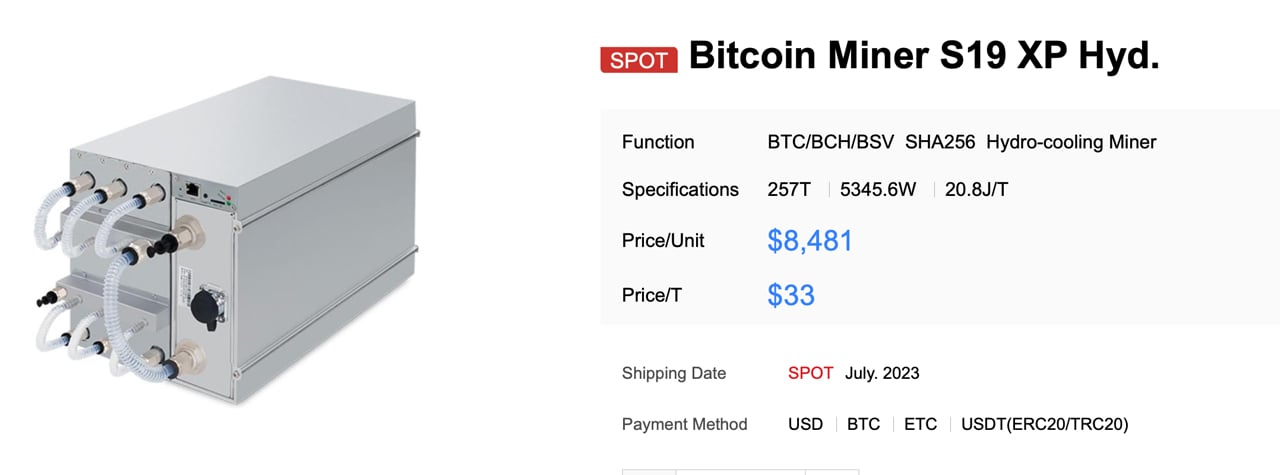
The Bitmain Antminer S19 XP Hydro model offers hashpower of around 255 TH/s. When factoring in electricity costs of $0.12 per kilowatt hour (kWh) on May 23, the S19 XP Hydro is estimated to yield around $4.79 per day in profits. Currently, it is the most profitable BTC miner on the market, but a rival is on the way. Microbt’s Whatsminer M53S++ claims to produce 320 TH/s, which is 65 TH/s greater than Bitmain’s Antminer S19 XP Hydro. At the time of writing, the Whatsminer M53S++ is currently not available for purchase.
The values of crypto assets are subject to constant fluctuations, and the profitability landscape has undergone substantial changes since our news desk last reported on this subject eight months ago. As previously mentioned, a KDA-compatible KA3 miner currently generates an estimated $6.79 per day in profits. However, 248 days ago, this same machine was yielding a much higher profit of $69.41 per day, assuming electricity costs of $0.12 per kilowatt hour (kWh).
This exemplifies how the profitability of mining rigs can significantly vary over time. By the time Bitmain’s KAS Miner KS3 is shipped, the daily profit may be considerably lower than the current estimate. This pattern holds true for all mining rigs ever created, as there have been instances when these machines were highly efficient and profitable, only to be rendered obsolete by either superior machines or volatile crypto prices.
What are your thoughts on the ever-changing landscape of profitable proof-of-work algorithms and the dominance of ASIC heavyweights in the mining industry? Share your insights and opinions in the comments section below.
Comments
Post a Comment